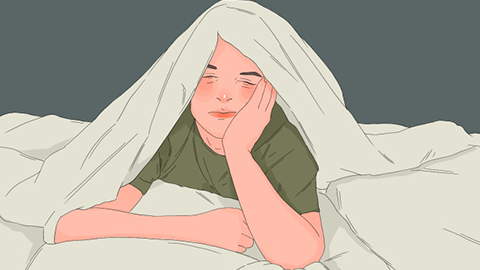Can't sleep at night after a sauna session
Insomnia after a sauna session at night may be caused by imbalances in body temperature regulation, excessive nervous system excitement, overexertion, endocrine disorders, hypertension, or other reasons. It can be managed through rest, relaxation techniques, or medication. It is recommended to seek medical attention promptly, identify the underlying cause, and receive treatment under the guidance of a qualified physician. Detailed analysis is as follows:

1. Imbalance in body temperature regulation: During a sauna, the body regulates its temperature through sweating, which raises body temperature. After the sauna ends, the body requires time to adjust to changes in the external environment. This temporary imbalance in temperature regulation may stimulate the nervous system and affect sleep quality, leading to insomnia. It is recommended to rest appropriately after a sauna and avoid immediately entering overly cold environments, allowing the body to gradually adapt to temperature changes.
2. Excessive nervous system excitement: During a sauna, the body is in a relaxed state with accelerated blood circulation, which may increase nervous system activity. It is advisable to avoid consuming beverages containing caffeine or stimulants—such as coffee or strong alcohol—before a sauna. After the session, practices like meditation or deep breathing can help relax the mind and body, reducing nervous system excitability.
3. Overexertion: Sauna therapy promotes blood circulation, removes blood stasis, warms the meridians, and improves metabolic function, helping the body eliminate toxins and waste more efficiently. However, saunas can also consume significant energy. If an individual already suffers from irregular eating habits or physical fatigue during the sauna, it may lead to exhaustion and subsequent insomnia. It is recommended to avoid overexertion, get adequate rest, and maintain a positive mood to alleviate such discomfort.
4. Endocrine imbalance: Sauna use may affect the secretion of melatonin, a hormone that plays a key role in regulating the sleep-wake cycle. Insufficient melatonin levels may result in insomnia. Patients may consider using medications such as Zhenyuan Tablets, Jingxin Oral Liquid, or Yimucao Granules as directed by a physician to relieve symptoms.
5. Hypertension: This condition may be associated with factors such as obesity or unhealthy lifestyle habits. During a sauna, the heart's workload may increase, potentially causing arrhythmia or blood pressure fluctuations, leading to symptoms like dizziness and fatigue. These symptoms can negatively impact sleep quality. Patients should follow medical advice and use antihypertensive medications such as Methyldopa Tablets, Captopril Sustained-Release Tablets, or Irbesartan Dispersible Tablets to manage their condition.
Prior to undergoing sauna therapy, individuals should ensure they do not have cardiovascular diseases or other contraindications to prevent adverse effects. It is recommended to maintain sufficient sleep, avoid staying up late, and engage in moderate physical exercise such as running or walking, which benefits overall health.





